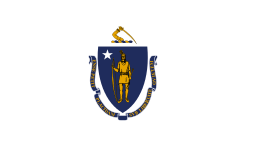Samuel Atkins Eliot (politician)
| Samuel Atkins Eliot | |
|---|---|
 | |
| Member of the U.S. House of Representatives from Massachusetts's 1st district | |
|
In office August 22, 1850 – March 3, 1851 | |
| Preceded by | Robert C. Winthrop |
| Succeeded by | William Appleton |
| Member of the Massachusetts Senate | |
|
In office 1843–1844 | |
| Member of the Massachusetts House of Representatives | |
|
In office 1834–1837 | |
| 7th Mayor of Boston, Massachusetts | |
|
In office 1837–1839 | |
| Preceded by | Samuel T. Armstrong |
| Succeeded by | Jonathan Chapman |
| Personal details | |
| Born |
March 5, 1798 Boston, Massachusetts |
| Died |
January 29, 1862 (aged 63) Cambridge, Massachusetts |
| Political party | Whig |
| Children | Charles W. Eliot[1] |
Samuel Atkins Eliot (March 5, 1798 – January 29, 1862), (who was a patriarch of a distinguished American family, the Eliot family and which included Thomas Hopkinson Eliot) was a member of the United States House of Representatives from Massachusetts.
Eliot was born in Boston, Massachusetts in 1798, and was the son of banker Samuel Eliot. He attended the Boston Latin School; graduated from Harvard University in 1817 and from Harvard Divinity School in 1820. About 1826, he married Mary Lyman and had four daughters and two sons, including Charles William Eliot, a future President of Harvard University.
He was a member of the Massachusetts House of Representatives from 1834 to 1837. From 1837 to 1839, he was mayor of Boston. During his administration a riot took place, caused by a collision between a volunteer fire company and an Irish funeral procession. The disturbance was suppressed by the promptness of Mayor Eliot, who was on the ground at the first alarm, and immediately took measures for calling out the militia. The result of this affair was the establishment of a paid fire department and a day police. He served in the Massachusetts Senate in 1843–1844. He was elected as a Whig to the Thirty-first Congress to fill the vacancy caused by the resignation of Robert C. Winthrop and served from August 22, 1850 to March 3, 1851; he declined to be a candidate for renomination in 1850. He was treasurer of Harvard University from 1842 to 1853. He published a Sketch of the History of Harvard College and of its Present State (Boston, 1848), and edited selections from the sermons of Dr. Francis W. P. Greenwood, with a memoir (2 vols., Boston, 1844). He died in Cambridge, Massachusetts on January 29, 1862 and his body was interred in Mount Auburn Cemetery.
See also
- Timeline of Boston, 1830s
Notes
- ↑ Mayors of Boston: An Illustrated Epitome of who the Mayors Have Been and What they Have Done], Boston, MA: State Street Trust Company, 1914, p. 15
References
-
 Wilson, James Grant; Fiske, John, eds. (1900). "Eliot, Samuel Atkins". Appletons' Cyclopædia of American Biography. New York: D. Appleton.
Wilson, James Grant; Fiske, John, eds. (1900). "Eliot, Samuel Atkins". Appletons' Cyclopædia of American Biography. New York: D. Appleton. - Image from Mayors of Boston: An Illustrated Epitome of who the Mayors Have Been and What they Have Done, Boston, MA: State Street Trust Company, Page 12, (1914).
Further reading
- Samuel A. Eliot. Being Mayor of Boston a Hundred Years Ago. Proceedings of the Massachusetts Historical Society, Third Series, Vol. 66 (Oct., 1936 -May, 1941), pp. 154–173.
External links
- United States Congress. "Samuel Atkins Eliot (id: E000105)". Biographical Directory of the United States Congress.
| Political offices | ||
|---|---|---|
| Preceded by Samuel T. Armstrong |
Mayor of Boston, Massachusetts 1837–1839 |
Succeeded by Jonathan Chapman |
| United States House of Representatives | ||
| Preceded by Robert C. Winthrop |
Member of the U.S. House of Representatives from Massachusetts's 1st congressional district August 22, 1850 – March 3, 1851 |
Succeeded by William Appleton |

